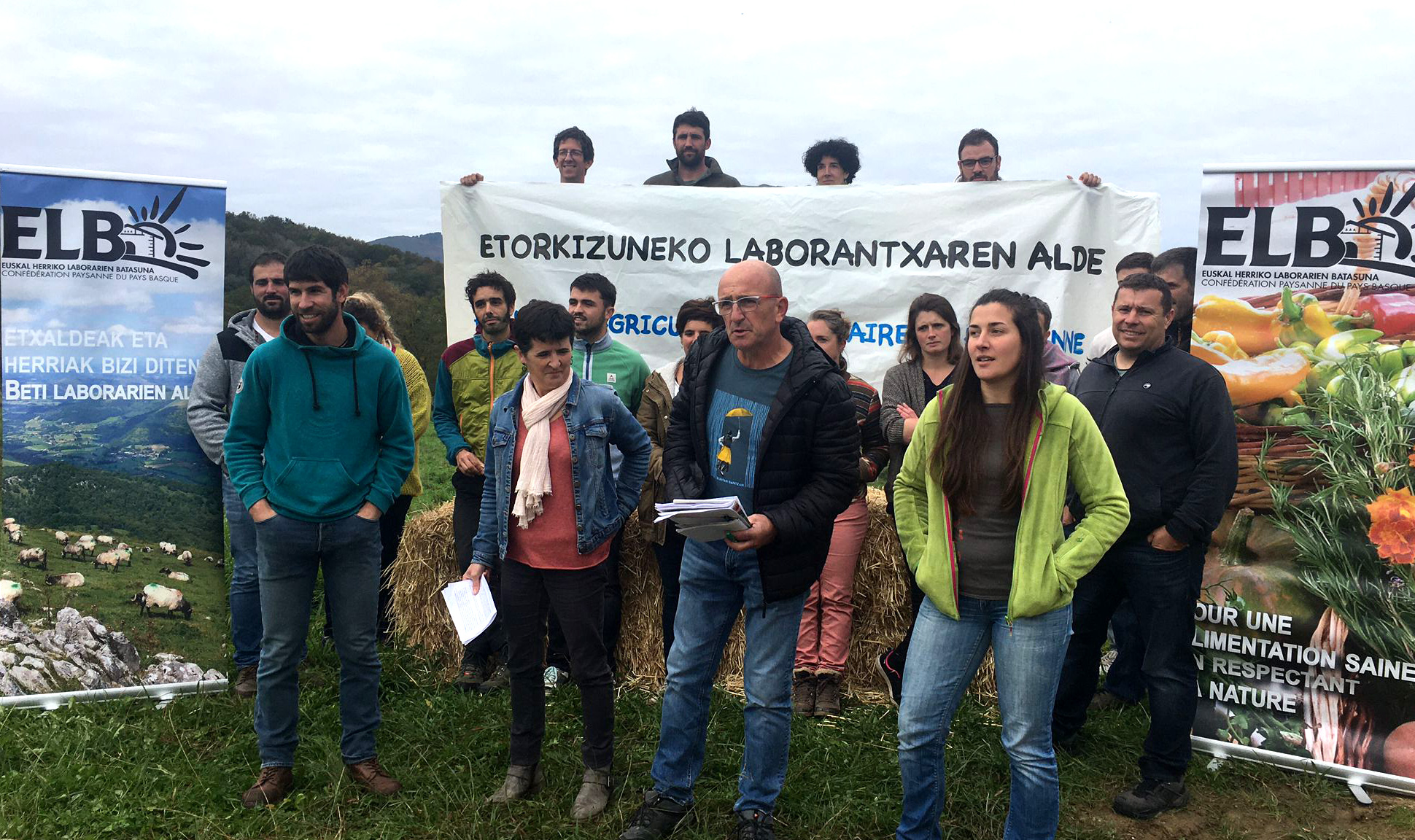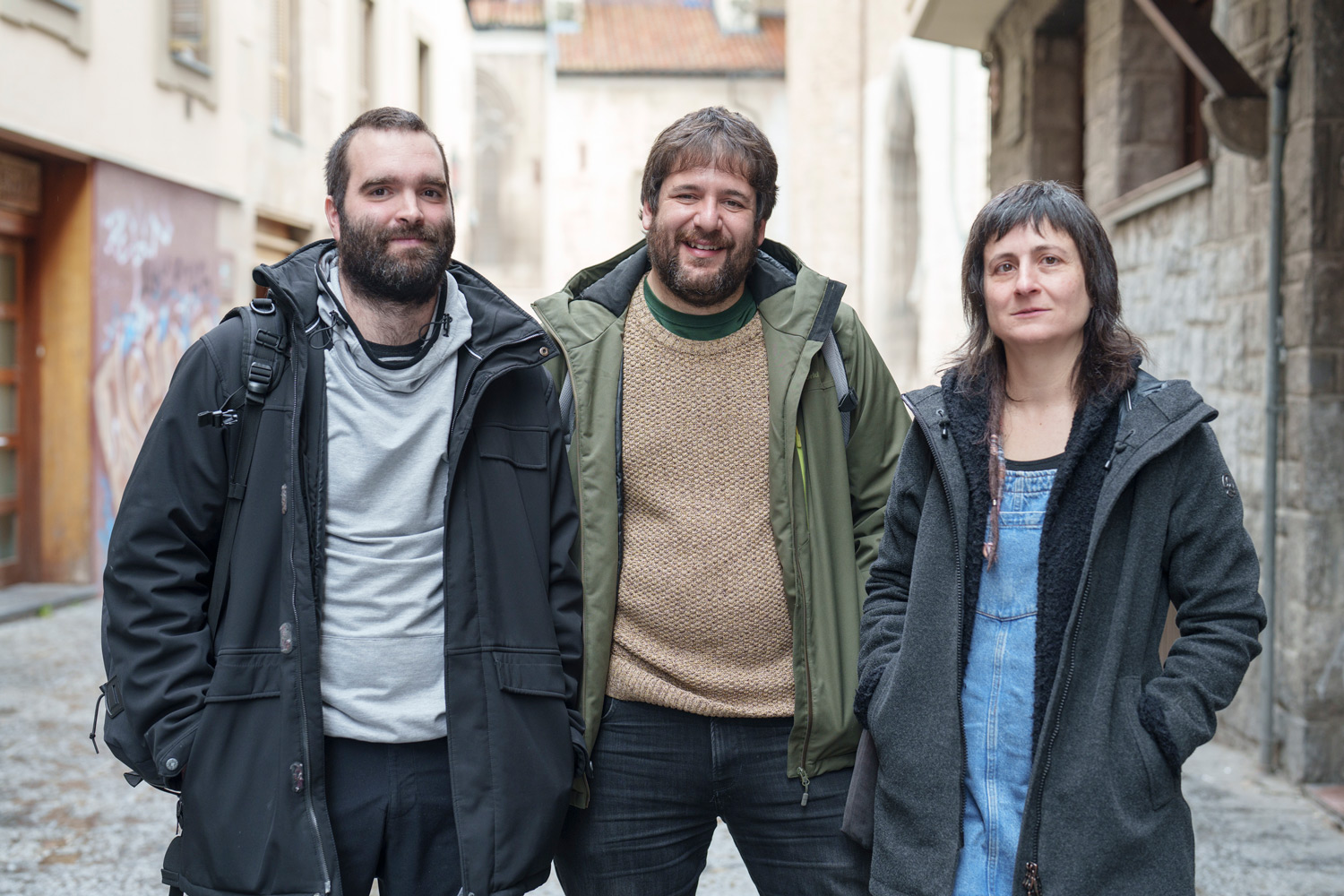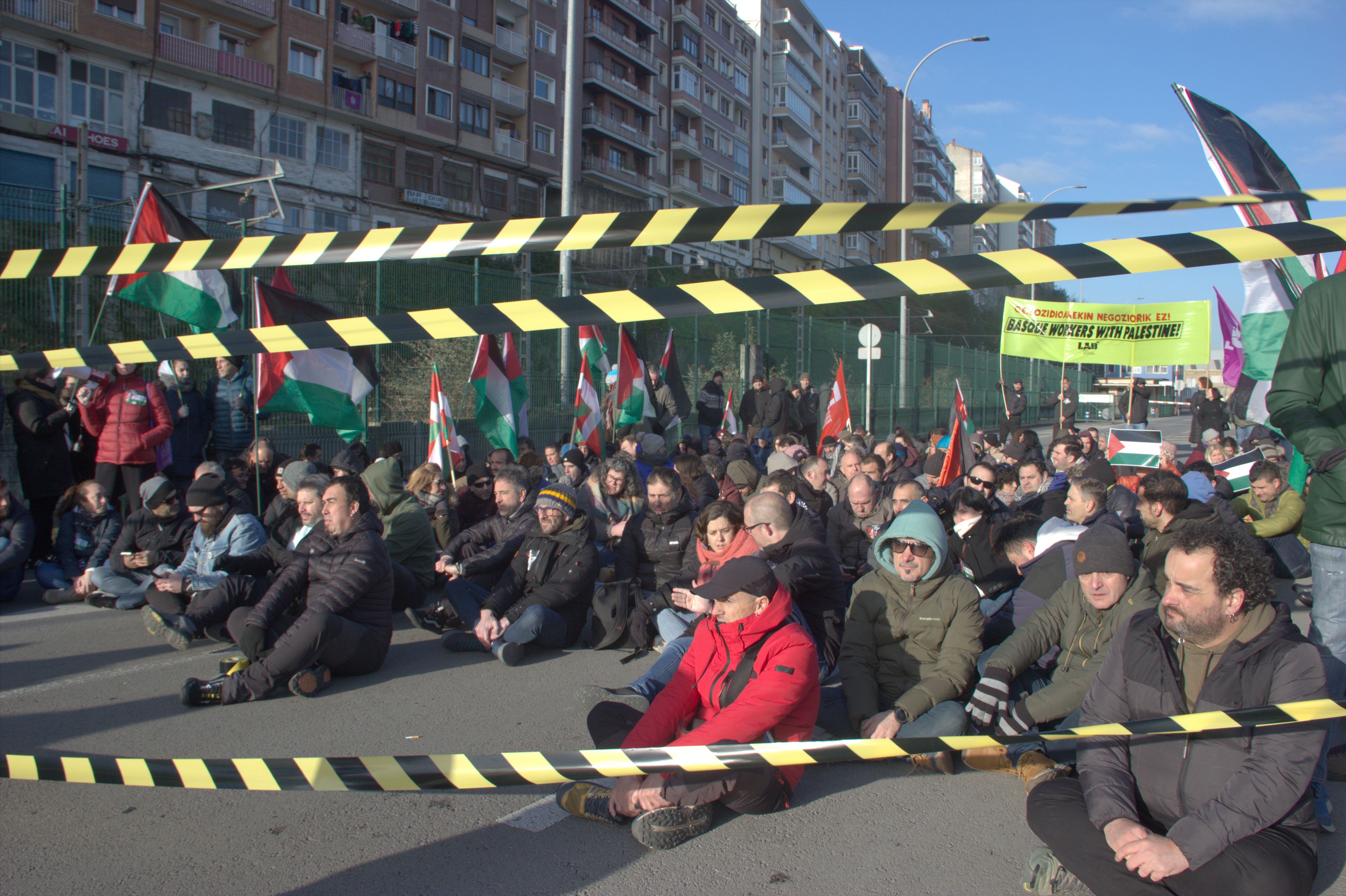"ELA has built a story to give up collaboration" with CCOO and UGT
- In 2017 he was appointed secretary-general of LAB and currently shares the position of general coordinator with Igor Arroyo. In the following areas we have worked on union models, alliances, general objectives and major challenges for the future. The phantom of the far right has also appeared, which has suffered head trauma.

In these 50 years there has been everything in the Basque syndicalism: In the 1980s, for example, UGT, CCOO and ELA were on one side, and LAB and others on the other. Then ELA-LAB imposed the majority, and later in the collective bargaining have reached agreements with UGT and CCOO on several occasions... How do you envisage the future of blockades?
LAB is the only trade union that has made the counterpart since the beginning. It's independence and Euskaldun from the very beginning. We have roots well attached to the earth, the trunk is a project that has been consolidated and the branches are spreading. We have combined the class struggle and national liberation well, and we have contributed a great deal to changing the union ecosystem.
Here are three trade union models: on the one hand, the concertation model of CCOO and UGT, based on social dialogue and without counteracting character; on the other hand, LAB and ELA are in the counterpart, but with different strategies and fluid relationships. We do not understand the counterbalance in terms of resistance, because in this country we see social transformation and political transformation totally linked. We understand the counterpart as the construction of a popular power. We believe that union pressure, mobilisation and confrontation are necessary, and we want to use this force to bring class struggle to all areas.
There are therefore different strategies in the trade union area, but it is not true that we are in any area of alliance with CCOO and UGT. As for ALS, we would like things to be somewhere else, because if the trade union majority of ALS and LAB were in place, we would have more power over the employers and the institutions. We are not there at the moment and in the future the road will tell.
In collective bargaining, how do LAB and ELA differ?
ELA, like us, has coincided with CCOO and UGT in several conventions. In collective bargaining, the biggest differences between us are not CCOO and UGT, but LAB understands that we are an instrument for all workers, that our union model is not organized according to our corporate objectives, and ELA works differently. It must be borne in mind that we do not have legislative capacity or exclusive competence in the field of employment. Collective bargaining has an important role in the configuration of the Basque framework, LAB has always defended collective bargaining between sectors, sectors and companies, and we have had differences with ELA and not in other alliances. Then, depending on the contents, some photos or others are given.
"In the joint declaration we signed in 2017, there were already commitments to promote a process of political and social transformation based on equality between women and men. Shortly after the signing of this declaration, ELA refused to develop the agreement"
Relations between LAB and ELA are now frozen. What are the pillars for a strong partnership in the future? In
the joint declaration we signed in 2017 there were already commitments to drive a process of political and social transformation. Shortly after the signing of this declaration, ELA refused to develop the agreement. Subsequently, it has built a report of renunciation of collaboration, and it is part of this to say that LAB has changed its policy of alliances and that it has signed agreements with CCOO and UGT. We have decided not to continue to feed this report, which does not bring any benefit to the Basque workers.
ELA says that it is independentist, but it should be taken into account that at the time of the Transition ELA did not opt for the rupture, but opted for the reformist; at that time it was not in a position to counter and gave good autonomy. Subsequently, LAB has launched mainly initiatives in favor of the Basque Framework of Labor Relations, and at the initiative of LAB the manifesto and the demonstration of 1994 have been directed. ELA says that it is independence, that we need a Basque State, but in all these years it has not shown any practice of independence.
.jpg)
In 1974, the goal of LAB was to build a Basque Socialist State, and now also. What characteristics does that socialist state have today?
We have put the fund on the Basque Socialist State, we have filled it with substance. In the representation of this socialism we have drawn up a socio-economic programme: what public services we should have, what the role of the State in the economy should be, what the role of workers in that state should be, what the process of democratisation should be, both at national level and in the participation of workers in the economy. We have received a proposal for a working code, a social security law of our own, an industrial policy that we would need in the energy transition, an eco-social transition, a public and community care system ... The greatest virtuality of this program is that it also draws a path of transition, without remaining in the pure theory.
In 2015 we carried out a process of rethinking the union model and at the 2017 congress we carried out an important ideological renewal, from the dichotomy of working capital to the dichotomy of vital capital. To fall from the defense of employment to a union that works in the defense of decent lives.
You mentioned the eco-social transition. Eco-socialism requires less production, less growth. And that's less work and less employment. How can we cope with this situation? We
have drunk feminism, eco-socialism and anti-racism, among others, in our innovation process. In 2017 we decided that we had to move towards eco-socialism, and at the present congress we talked about the need for growth. In some areas decomposition gives opportunities for growth in others, such as in the area of surveillance and public services. With a view to the impact of all this on the world of employment, we propose a profound reduction in working time: Day 30 hours. It is still only us that have put such a reference on the table, and the claim will have to be gradually made. The fraud of green capitalism is there, and that is why we say that the participation of workers is fundamental. That is why we have proposed to set up the committees we call for transition, so that there is the necessary social debate.
"We have drunk feminism, eco-socialism and anti-racism, among other things, in our innovation process. In 2017 we decided that we had to move towards eco-socialism and at the present congress we talked about the need for growth."
In the political and institutional debate, the issue of growth does not exist. It's taboo in parliaments, in city halls -- in almost any institution.
It is a word that is hard to reach, and in ours the word has also got well, we came from 2017 with that reflection. We are all asked, individuals also have our responsibility, not least because we can decide what and how we want to consume, but although that responsibility is institutional, that of the employers... and that is why we say that we need more general discussion frameworks.
In Europe, it is being seen that the extreme right attracts workers more than left-wing movements and trade unions.
Behind this expansion of the extreme right and fascism is the lack of life expectancy generated by the system itself. To the detriment of the collective, neoliberalism has led to an increase in individualization. The extreme right is making use of that social unrest created by the system, with very simple messages, making migrant workers enemies, or provoking a machist reaction to the advancement of feminism. In Euskal Herria we are not safe from these reactionary values, but fortunately we have a different political and union reality. First of all, the best antidote is the combative, feminist and anti-racist syndicalism. The story of the extreme right is spreading in society very quickly and we have to be very vigilant about it.
Also in Euskal Herria? Do you see it in the workplace? In the workplace not
yet, but in society in general, there are many messages: when migrants are associated and security, in daily conversations there are some messages, some tics... When the McDonald’s started, we said: “They will not arrive in Euskal Herria,” but they have already arrived. We have to have the antidote ready to deal with reactionary messages, ideas and attitudes.
The Department of Education doesn't understand why public employees have gone on strike. He's got to ask the LAB Syndicate. This union signed an agreement with the department in April 2023. Two years later they have also called for a strike because, unlike the previous ones, the... [+]
Datorren astean Departamenduko Laborantza Ganbarako hauteskundeak ospatuko dira Ipar Euskal Herrian. Frantzia mailako FDSEA eta CR sindikatuez gain, ELB Euskal Herriko Laborarien Batasuna aurkezten da, "euskal laborarien defentsa" bermatzeko.
And for another year, the unions have organized prefabricated strikes for us. And we, individually, will decide whether or not to join the strike, without the need for any assembly at the school.
The strike model that I was taught is no longer in vogue, it seems. In my... [+]
Lehen aldia da Hego Euskal Herriko euskal gehiengo sindikalak armagintza industriaren moldaketaz taldean eta modu publikoan hitz egiten duena. Aurreko hilabeteotan mugimendu antimilitaristak bilera bana egin du lau sindikatuokin, produkzio militarra “sozialki... [+]
Today, January 21, is a day to remember and reflect on an interesting ephemeris of our recent history. It is 50 years since the lockdown of 47 workers from Potase in Navarre. This lockdown, which lasted fifteen days, caused a general strike in Navarre, the Department of the... [+]
Departamenduko Laborantza Ganbarako hauteskundeen kanpaina abiatu da. Urtarrilaren 14an bozetara aurkezten diren hiru sindikatuen ordezkariekin bi oreneko eztabaida sakona antolatu zuten Euskal Hedabideek, osoki euskaraz.







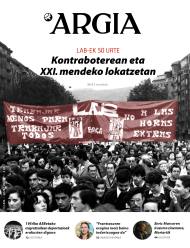


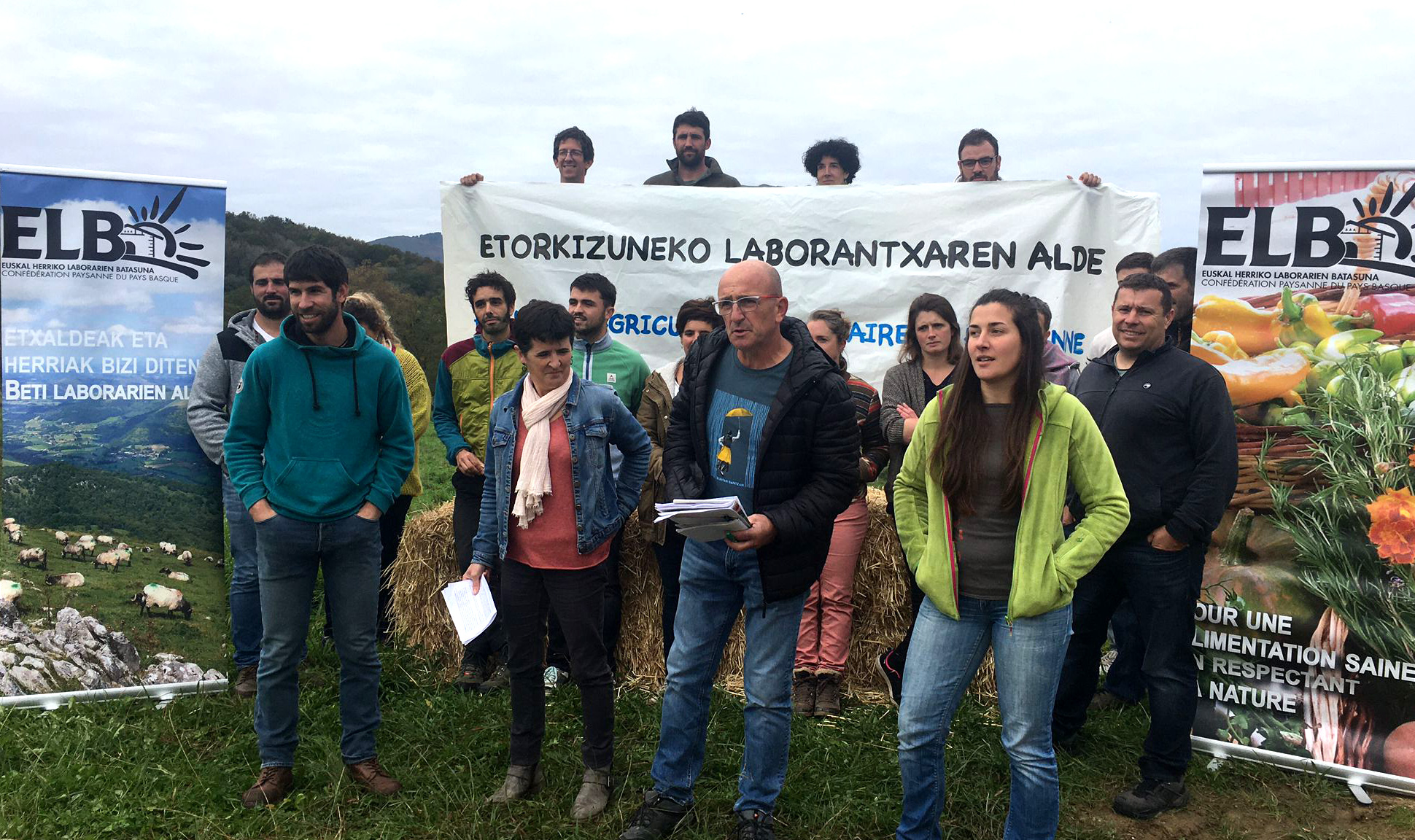
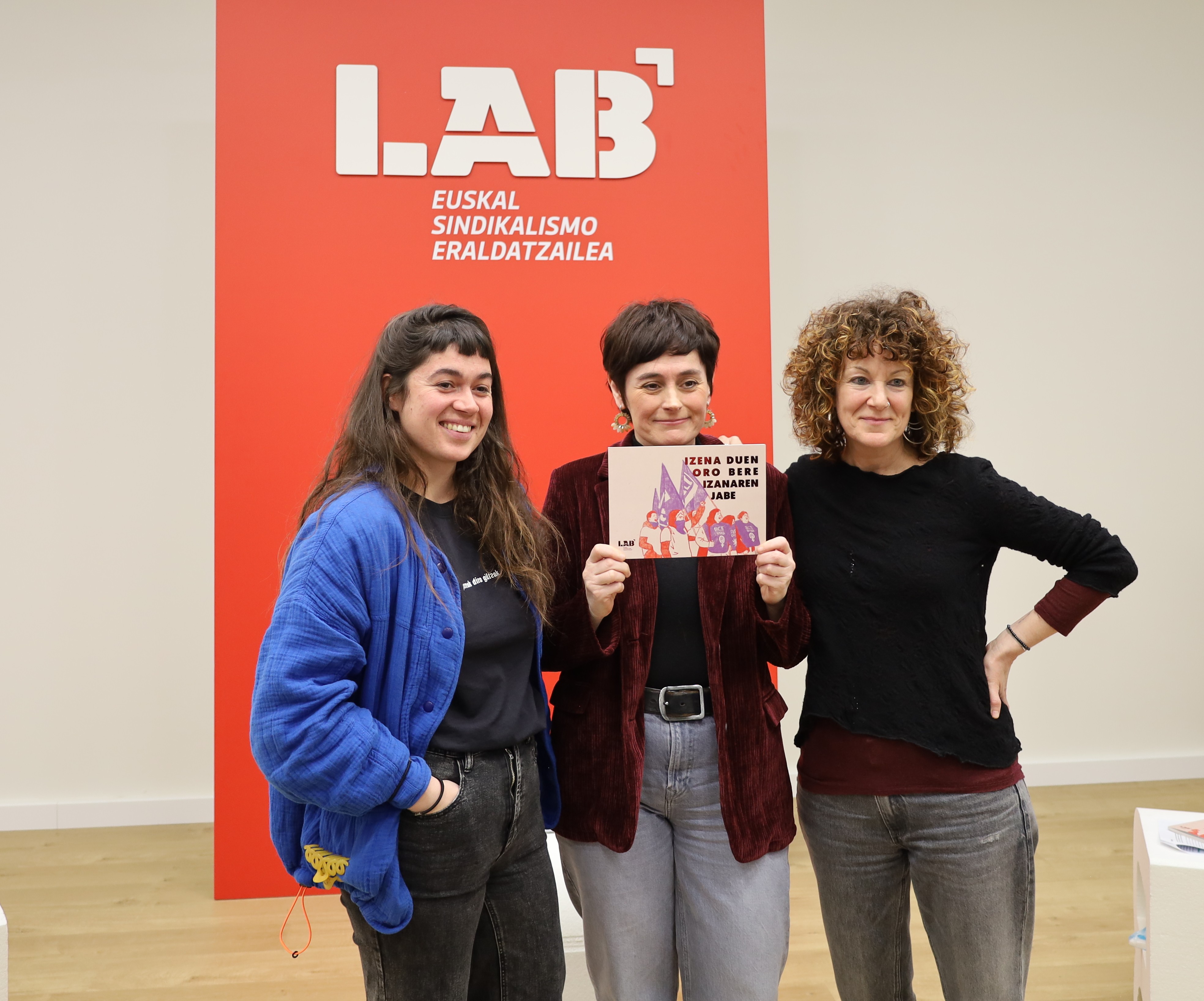

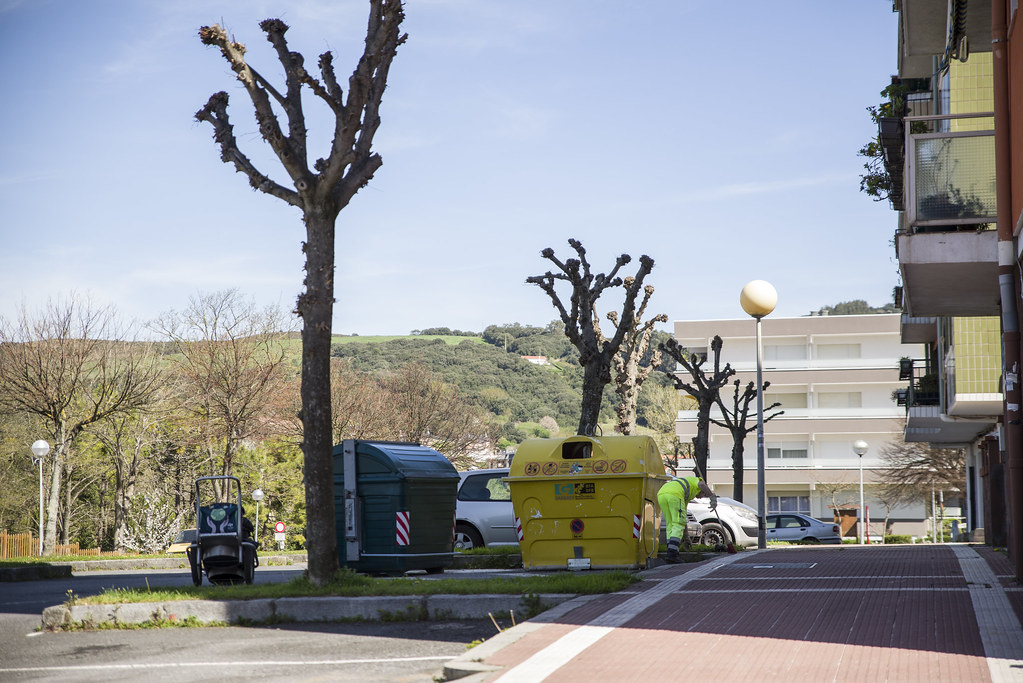
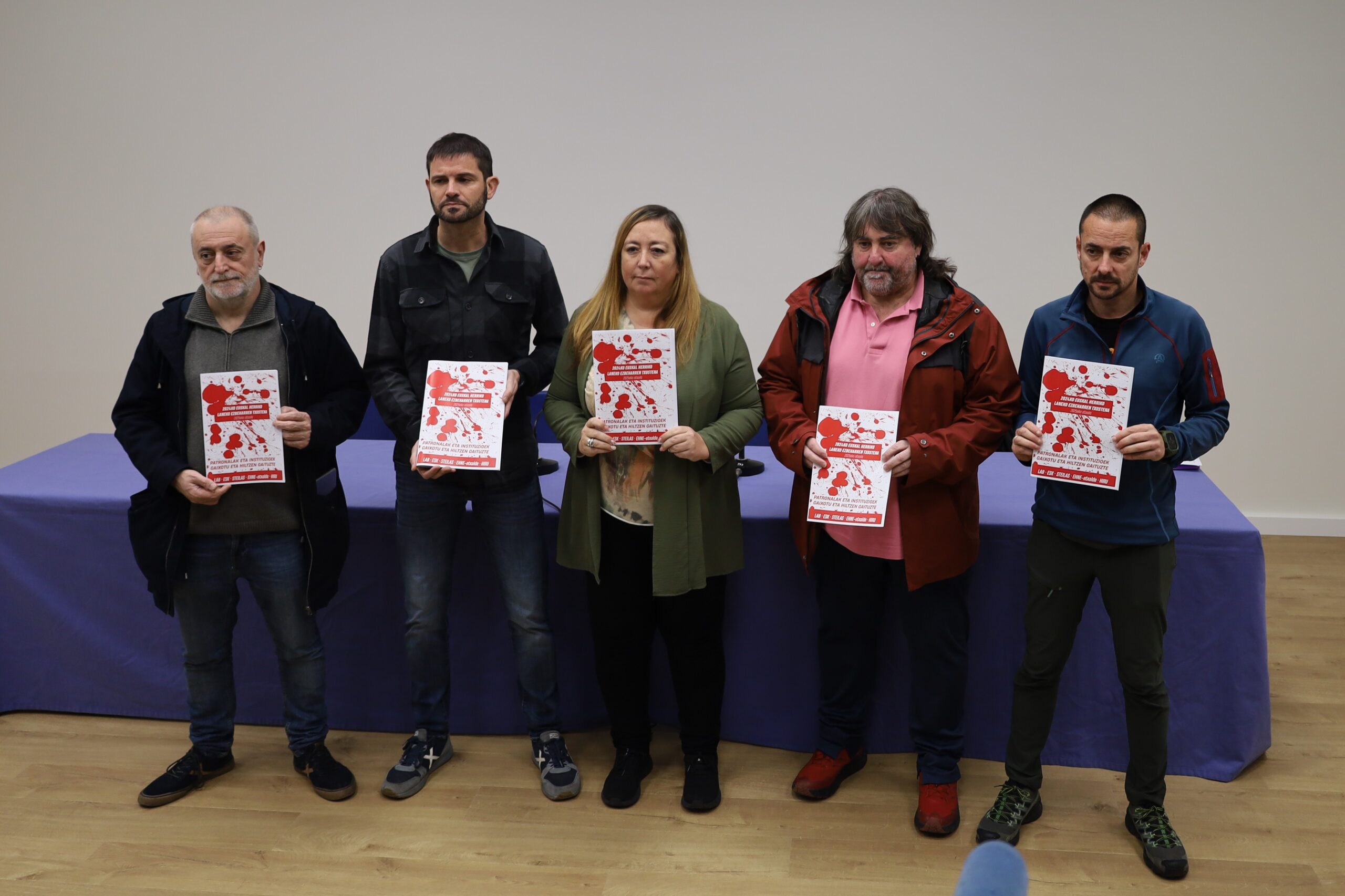
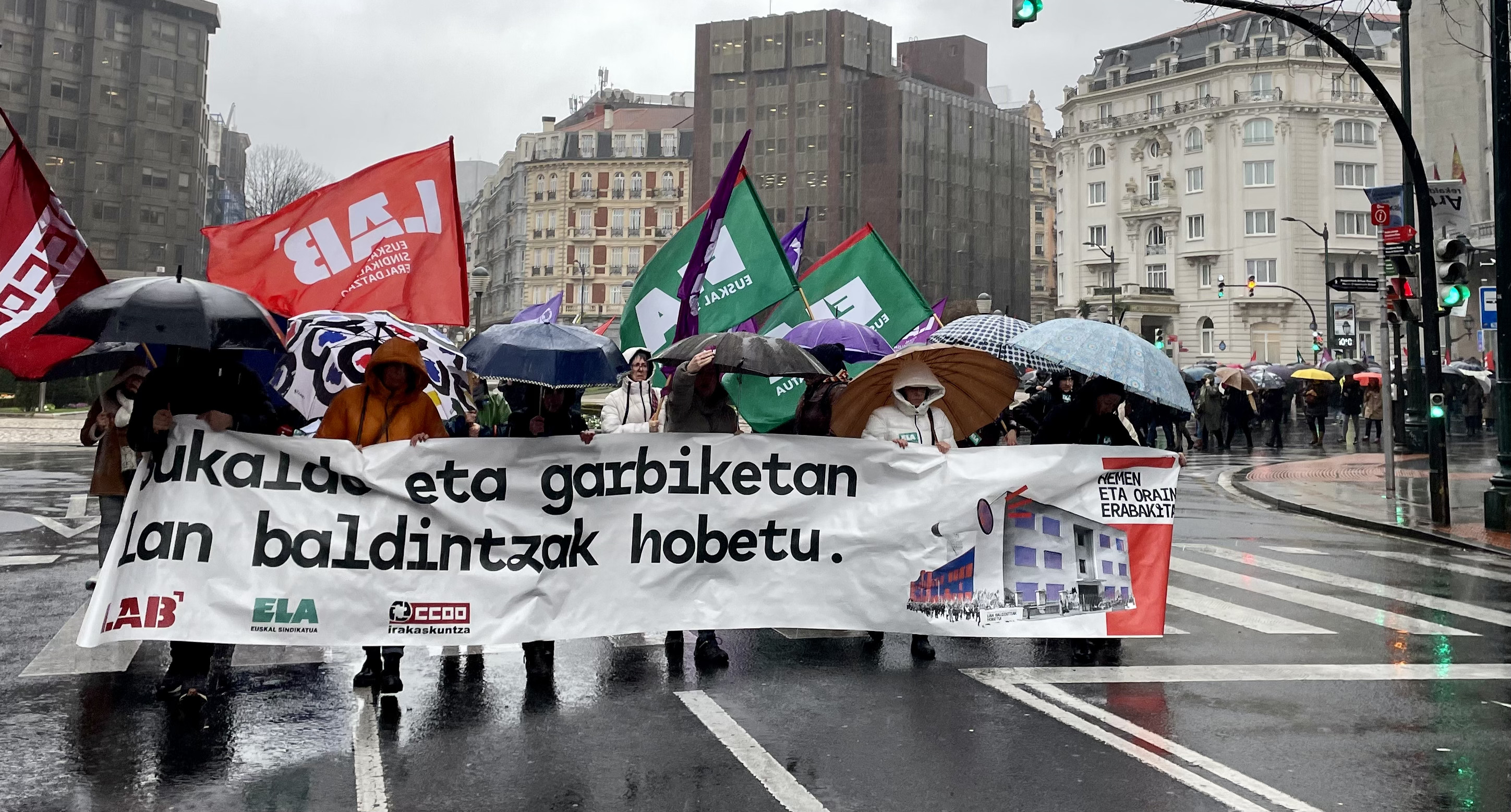

.jpg)
